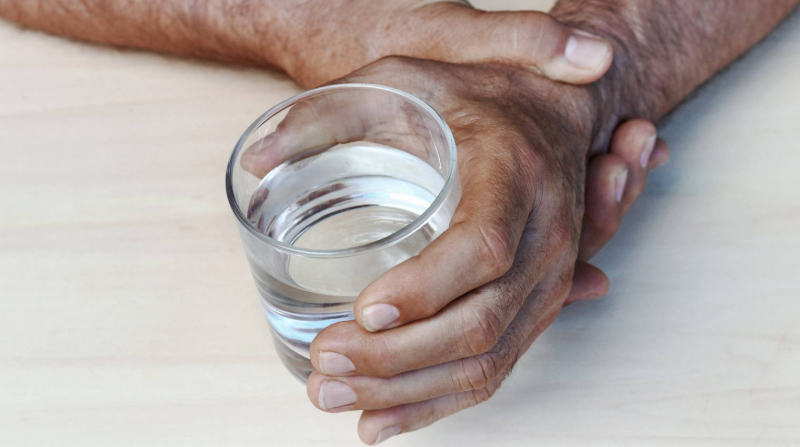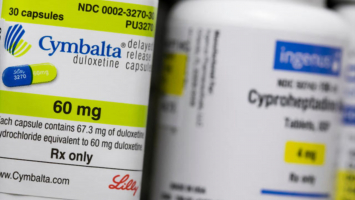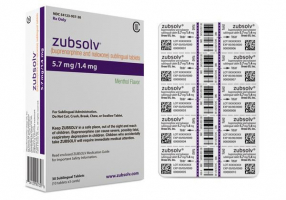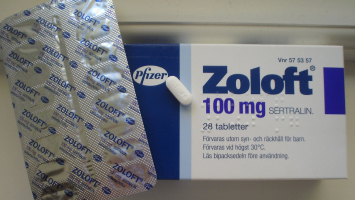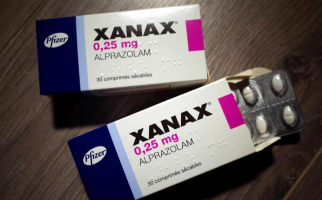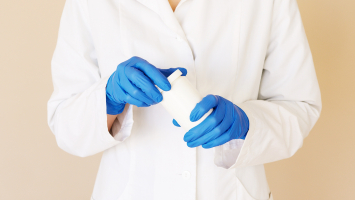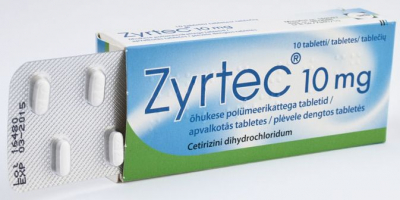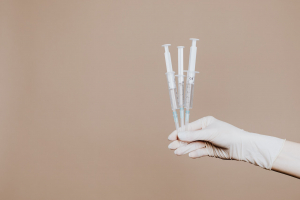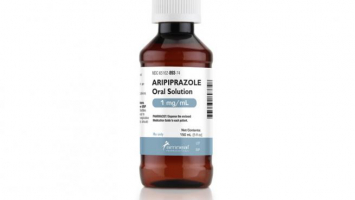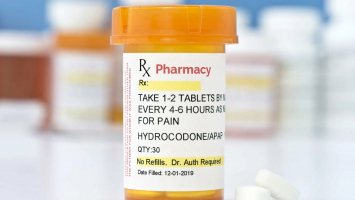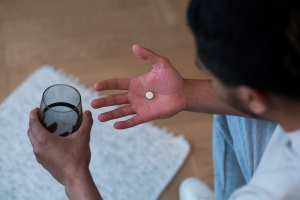Top 7 Things to Know About Benadryl
Benadryl is a brand name for diphenhydramine, a first-generation antihistamine. This medication is usually used to treat symptoms of seasonal allergies or ... read more...colds such as sneezing, runny nose, watery eyes, and skin rashes. In addition, Benadryl can also treat motion sickness, induce drowsiness, and treat some symptoms of Parkinson's disease. Some other side effects of a drug are not listed on the approved drug label, but your doctor may direct you to take it. You should only use this medicine to treat certain medical conditions only when prescribed by your doctor. Here are several things you should know about this drug.
-
Benadryl is a brand (trade) name for diphenhydramine, an antihistamine that can be used to treat allergies, motion sickness, help induce sleep, and relieve Parkinson's disease symptoms.
Diphenhydramine works by blocking histamine-1 (H1) receptors to treat allergic reactions. This prevents histamine from acting on the airways, blood vessels, and gastrointestinal tract, reversing symptoms like bronchoconstriction (airway narrowing), rash and itching, and stomach cramps. Diphenhydramine also inhibits serotonin reuptake and blocks acetylcholine receptors and sodium channels, among other things. These latter effects are responsible for its sedative properties as well as side effects like dry mouth.
Benadryl belongs to the first-generation antihistamine class of medications. Benadryl belongs to the ethanolamine class of antihistamines.
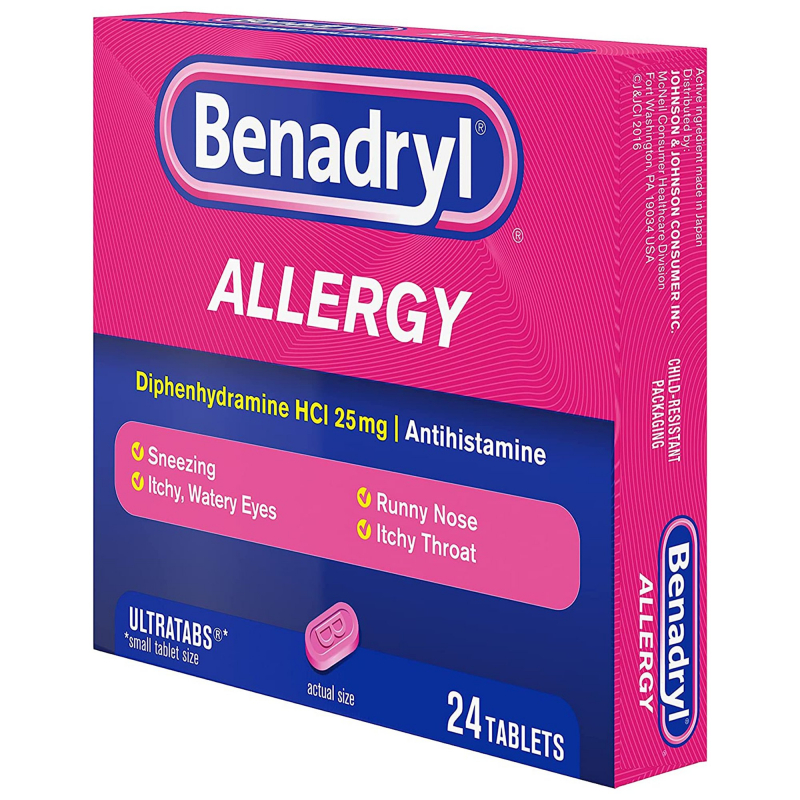
McKesson Medical-Surgical 
Springer Link -
Sneezing, itching, watery eyes, and runny nose are some of the symptoms of allergic-type reactions that are treated with this drug.
It can be used to treat allergies, insect bites, hay fever, allergic conjunctivitis, urticaria (hives), and anaphylactic reactions in addition to epinephrine.
May be used to alleviate the nausea and vomiting symptoms associated with motion sickness.
Can be used to assist people in relaxing or falling asleep.
It may also be used for elderly Parkinson's disease patients who are unable to tolerate more potent agents.
When the oral form is impractical, the injection form may be useful.
Under the name diphenhydramine, Benadryl is also available as a generic.
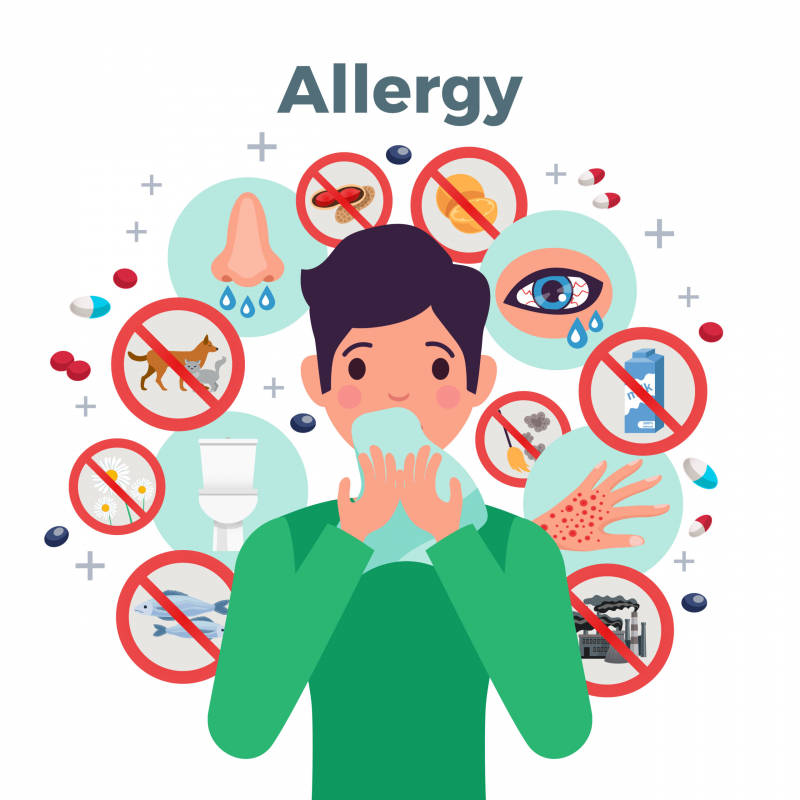
Apollo Hospitals Blog - AskApollo 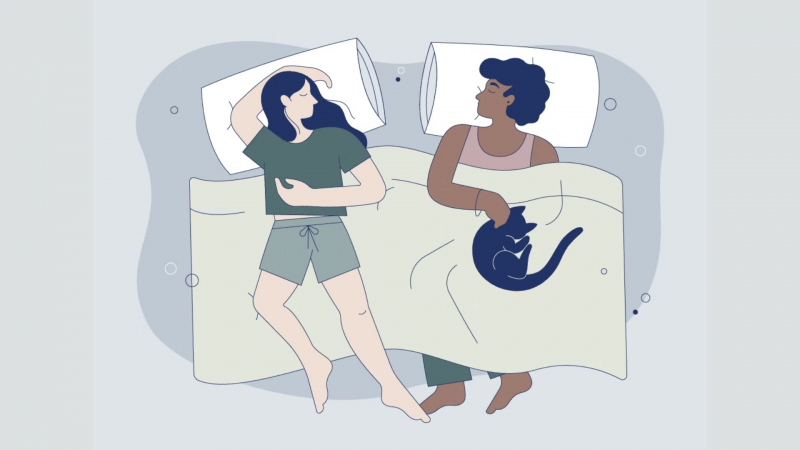
Casper -
If you are between the ages of 18 and 60, do not take any other medications, and have no other medical conditions, you are more likely to experience the following side effects:
- Drowsiness and sedation can impair judgment and make it difficult to drive or operate machinery. Alcohol should be avoided because it can exacerbate this side effect.
- Dizziness, low blood pressure, headache, rapid heartbeat, disturbed coordination, abdominal discomfort, and mucus thickening in the airways are all possible symptoms. The elderly may be more susceptible to side effects such as dizziness, sedation, and low blood pressure.
- If taken on a regular basis, it has an atropine-like effect and may cause dry mouth, which may increase the risk of dental caries and worsen the symptoms of gastroesophageal reflux disease (GERD).
- Breastfeeding mothers and young children should avoid using this product. Sedation, dizziness and low blood pressure symptoms may be more severe in the elderly (all of which may increase their risk of falls).
- Benadryl overdosage has been linked to hallucinations, convulsions, and death.
- Other drugs that may interact with it include benzodiazepines, antidepressants, antipsychotics, and alcohol.
- Some people may be ineligible, such as those with respiratory diseases like asthma, narrow-angle glaucoma, peptic ulcer disease, intestinal obstruction, high blood pressure or heart disease, high thyroid levels, an enlarged prostate, or a narrowing of the bladder neck. It should not be used by people who are allergic to diphenhydramine.
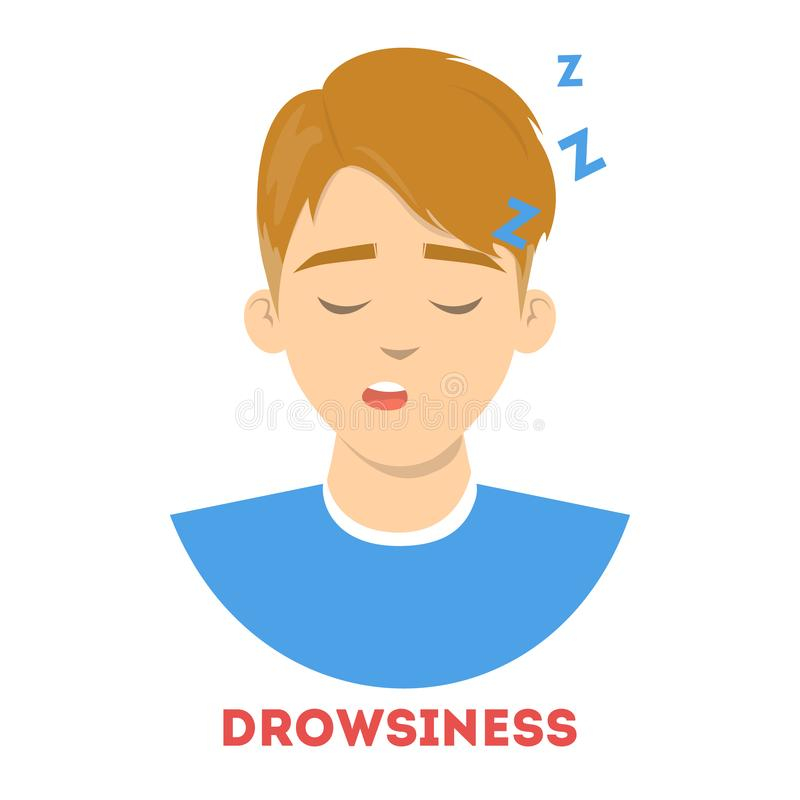
Dreamstime.com 
Everyday Health -
Benadryl can be administered with or without food. Follow the directions exactly. Take no more than is recommended.
If Benadryl makes you drowsy or impairs your judgment, do not drive or operate machinery. Stay away from alcohol.
Take Benadryl 30 minutes before any exposure to motion to prevent motion sickness. For the duration of the exposure, take subsequent doses before meals or at bedtime.
Benadryl should not be used as a sleep aid in children under the age of twelve. It should never be used on newborn babies, especially those who were born prematurely. Benadryl can cause excitation and sedation in children, and an overdose can result in hallucinations, convulsions, or death.
If you are taking Benadryl for an extended period of time, make sure you maintain good oral hygiene.
When rising from a sitting or lying down position, take your time. Benadryl can cause a drop in blood pressure, which can cause dizziness and increase your risk of falling. Remove any potential fall hazards in your home (such as rugs) and consult your doctor if you experience severe dizziness when standing up.
If you experience any symptoms like agitation, hallucinations, a rapid heartbeat, dizziness, flushing, muscle tremor or rigidity, nausea, vomiting, or diarrhea, get emergency medical help right away.
Before taking any other medications while taking Benadryl, consult your doctor or pharmacist.
Before taking Benadryl during pregnancy, consult your doctor because there have been no adequate well-controlled studies on pregnant women. Do not use it if you are breastfeeding.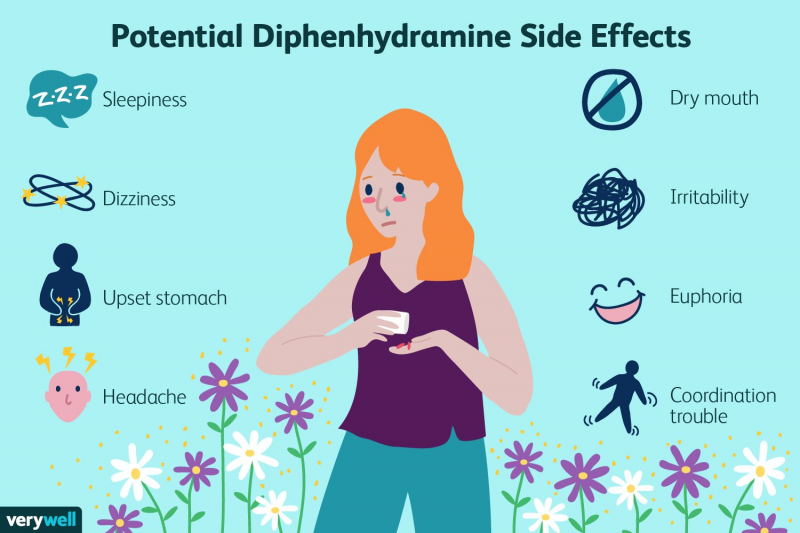
verywellhealth.com 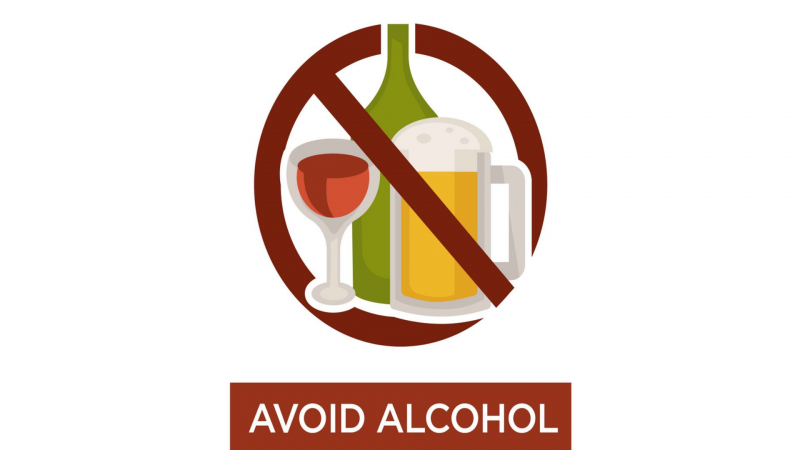
Consumer HealthDay -
Benadryl is rapidly absorbed after oral administration, with peak effects occurring within an hour. Diphenhydramine's effects last four to six hours. The injectable form of Benadryl has a rapid onset of action.
Benadryl 50mg at bedtime is the usual dosage when used as a nighttime sleeping aid. In the elderly, a lower dose may be required.
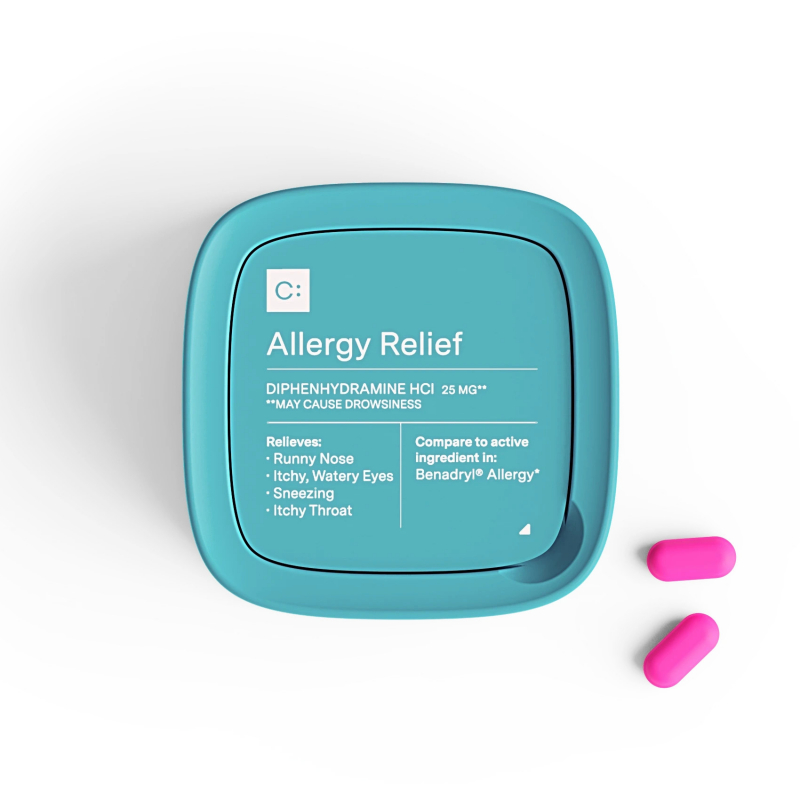
Cabinet Health 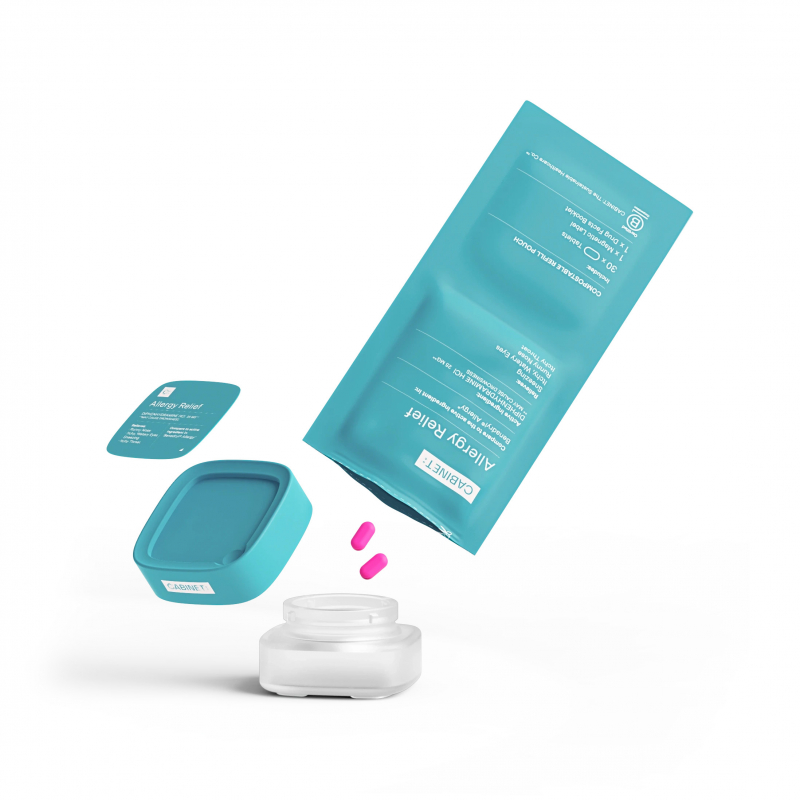
Cabinet Health -
Medicines that interact with Benadryl may reduce its effect, shorten its duration of action, increase side effects, or have no effect when combined. An interaction between two medications does not always necessitate the discontinuation of one of them; however, it can. Consult your doctor about how to handle drug interactions.
Benadryl may interact with the following medications:
- benzodiazepines, such as diazepam, oxazepam, and temazepam
- monoamine oxidase inhibitors, such as isocarboxazid, selegiline, or tranylcypromine
- opioids, such as oxycodone, morphine, or codeine
- sedatives, or any medication that causes sedation, such as sleeping pills, muscle relaxants, or antidepressants
- other medications that contain diphenhydramine, such as creams and gels
- other medications used to treat allergies.
Benadryl's sedative effects may be exacerbated by alcohol.
Please keep in mind that this list is not exhaustive and only includes common medications that may interact with Benadryl. For a complete list of interactions, consult the Benadryl prescribing information.
Consumer HealthDay 
Burt's Pharmacy









